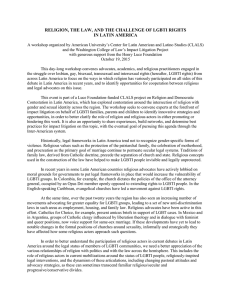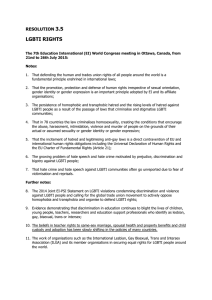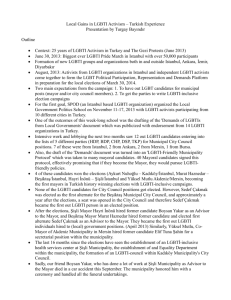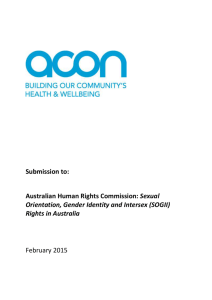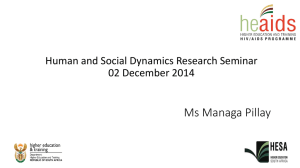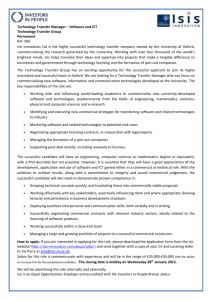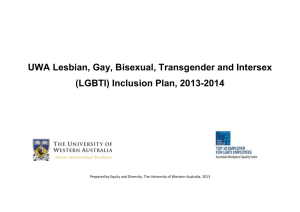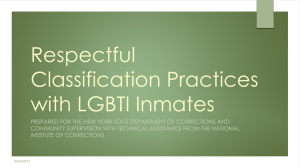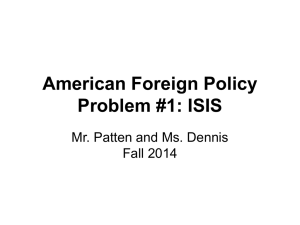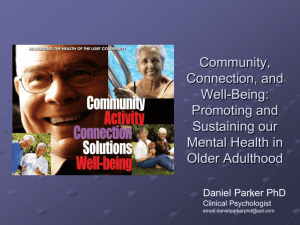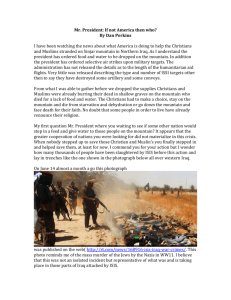FINAL_JLS Remarks_8.24.2015_FINAL
advertisement
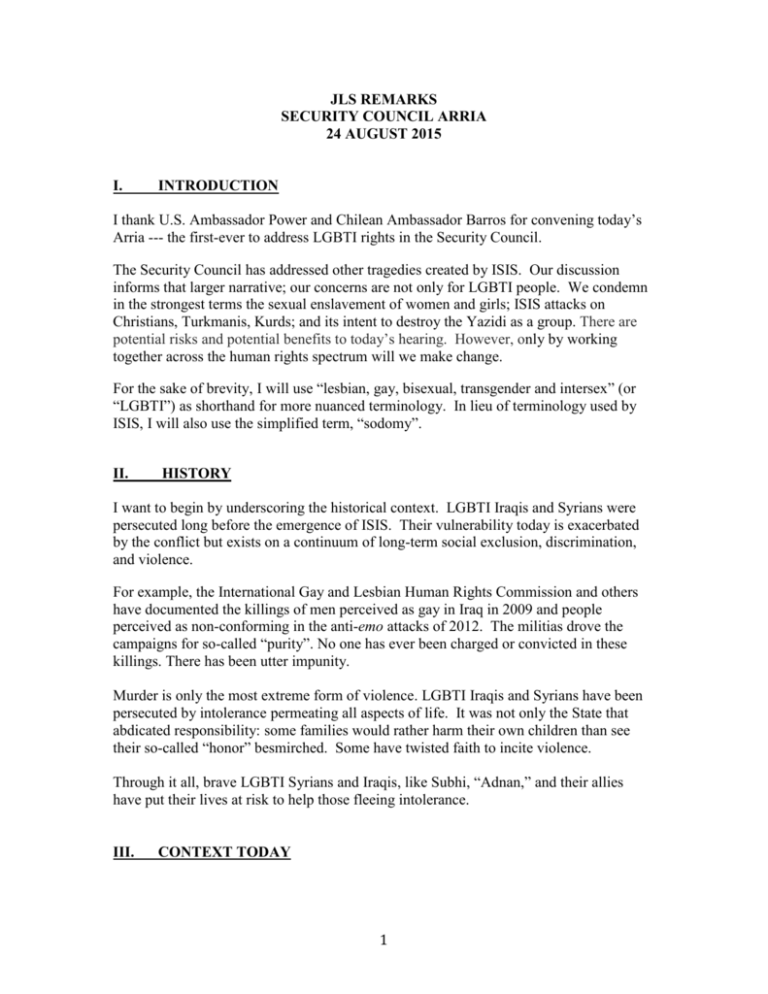
JLS REMARKS SECURITY COUNCIL ARRIA 24 AUGUST 2015 I. INTRODUCTION I thank U.S. Ambassador Power and Chilean Ambassador Barros for convening today’s Arria --- the first-ever to address LGBTI rights in the Security Council. The Security Council has addressed other tragedies created by ISIS. Our discussion informs that larger narrative; our concerns are not only for LGBTI people. We condemn in the strongest terms the sexual enslavement of women and girls; ISIS attacks on Christians, Turkmanis, Kurds; and its intent to destroy the Yazidi as a group. There are potential risks and potential benefits to today’s hearing. However, only by working together across the human rights spectrum will we make change. For the sake of brevity, I will use “lesbian, gay, bisexual, transgender and intersex” (or “LGBTI”) as shorthand for more nuanced terminology. In lieu of terminology used by ISIS, I will also use the simplified term, “sodomy”. II. HISTORY I want to begin by underscoring the historical context. LGBTI Iraqis and Syrians were persecuted long before the emergence of ISIS. Their vulnerability today is exacerbated by the conflict but exists on a continuum of long-term social exclusion, discrimination, and violence. For example, the International Gay and Lesbian Human Rights Commission and others have documented the killings of men perceived as gay in Iraq in 2009 and people perceived as non-conforming in the anti-emo attacks of 2012. The militias drove the campaigns for so-called “purity”. No one has ever been charged or convicted in these killings. There has been utter impunity. Murder is only the most extreme form of violence. LGBTI Iraqis and Syrians have been persecuted by intolerance permeating all aspects of life. It was not only the State that abdicated responsibility: some families would rather harm their own children than see their so-called “honor” besmirched. Some have twisted faith to incite violence. Through it all, brave LGBTI Syrians and Iraqis, like Subhi, “Adnan,” and their allies have put their lives at risk to help those fleeing intolerance. III. CONTEXT TODAY 1 This brings us to where we are today. The conflict has not only increased the vulnerability of millions of Iraqis and Syrians, it has also further entrenched structural and cultural violence against women and and LGBTI persons. Depicted in gruesome detail in the slideshow behind me, the International Gay and Lesbian Human Rights Commission has assembled a timeline of alleged killings by ISIS for sodomy. ISIS is the primary source of information for these killings. Much of its narrative should be questioned, yet, some things are clear. IV. We can say that the minimum number of executions for sodomy for which ISIS has claimed responsibility is 30. ISIS-established courts have claimed to punish sodomy with stoning, firing squads, beheadings, and by pushing men from tall buildings. ISIS advertises these killings to give the impression of as many executions as possible. We know that the fear of ISIS has fueled violence against LGBTI persons by other militias and private actors. GENDER We also need to address the politics of gender. In addition to men perceived as gay, trans-identified people and lesbians are among those who have been raped and killed. We must analyze how both gender and sexuality heightens vulnerability to abuse. Yanar Mohammed, founder of the Baghdad-based Organization for Women’s Freedom in Iraq, commented, “There’s no question that lesbians and transgender people endure extreme levels of violence and constant restriction of movement. The misnomer is that they’re safer, but the reality is, they live with an endless onslaught of oppression.” V. OBLIGATIONS OF THE INTERNATIONAL COMMUNITY How does this inform the international community’s obligations? I asked Mahmoud Hassino, founder of the first Syrian LGBTI magazine, Mawaleh, what to convey at this Arria. He said, “They have all the information. It’s time to act!” The heart of my message today is this: the international community must understand antiLGBTI persecution as a component of how ISIS treats those it labels as “impure.” We must recognize that these threats exist on a continuum of violence and discrimination before, during, and after conflict. This holistic analysis leads to more sustainable solutions for addressing LGBTI violations while helping to dismantle long-term structural violence. Otherwise, we run the risk of 2 increasing the vulnerability of LGBTI Iraqis and Syrians by their perceived association with the West. This means that we need LGBTI-specific strategies as well as our integration into broader human rights and humanitarian initiatives. These solutions follow the same basic principles to address LGBTI abuses globally. The rule of law, poverty, literacy, the safety of women and religious minorities are all LGBTI issues. I have 5 recommendations for action. 1. All UN agencies in Iraq and Syria must have tailored LGBTI programming. 2. UNHCR and governments must continue to act with urgency for those most in need of relocation. 3. The Government of Iraq should remove barriers to access to direct services and justice. 4. The Government of Iraq must respect freedom of expression and allow independent radio stations to operate. 5. Donors must fund initiatives by LGBTI Iraqis and Syrians and by their allies. Resources should support immediate needs, like safe houses and psychosocial support, and long-term rights-based initiatives and norm building. VI. CONCLUSION In conclusion, I want to share a ray of hope. Recently, a gay friend from Iraq founded a new organization for LGBTI Iraqis: IraQueer. Now with members across the country, they’re finding ways to survive -- even in ISIS-controlled areas. If they can find a way, so can the international community. Today is a first step. 3
